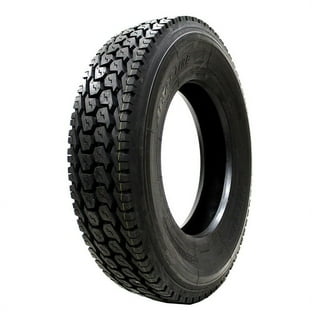Quality Tire Shop Morris: Your Best Destination for Tire Needs
Quality Tire Shop Morris: Your Best Destination for Tire Needs
Blog Article
Tire Service: Comprehending Tire Pressure Surveillance Equipments
Understanding Tire Pressure Tracking Equipments (TPMS) is a crucial element of maintaining ideal lorry performance and safety on the road. With developments in automotive technology, TPMS has become a common feature in contemporary automobiles, supplying real-time info on tire pressure degrees.

Relevance of TPMS
The relevance of Tire Stress Tracking Systems (TPMS) hinges on their ability to improve car safety and efficiency via real-time tracking of tire pressure levels. Maintaining the proper tire pressure is essential for making certain optimum handling, braking, and total security of a car. TPMS provides chauffeurs with instant feedback on any type of underinflated or overinflated tires, enabling timely adjustments to be made.
Parts of TPMS
Comprising different essential components, a Tire Stress Tracking System (TPMS) operates as an advanced security attribute in modern vehicles. The major components of a TPMS consist of sensors, a control component, and a caution indicator. Sensing units are commonly located in the tire shutoff stem or connected to the wheel assembly, where they gauge tire stress and send data to the control module. If it spots significantly reduced pressure in any of the tires, the control module processes this info and activates a warning. The caution sign, usually a symbol on the dashboard, alerts the chauffeur to inspect the damaged tire or tires. Some advanced TPMS designs also present the real tire pressure readings for each tire, supplying motorists with real-time info to make certain optimum tire efficiency and safety. By monitoring tire stress continuously, TPMS assists prevent mishaps, decreases tire wear, and boosts gas performance, making it a crucial element for lorry security and efficiency.
Kinds Of TPMS

On the other hand, indirect TPMS counts on the vehicle's wheel speed sensors to keep track of tire stress. This system spots underinflation by comparing the rotational rates of the wheels. Indirect TPMS is less costly than direct TPMS, as it uses existing sensors within the automobile.
While direct TPMS offers more accurate analyses, indirect TPMS is simpler in layout and usually needs less maintenance. Both systems have their restrictions and advantages, and the selection between them frequently depends on elements such as expense, car make, and individual choice. Comprehending the distinctions between these two kinds of TPMS can help automobile owners make notified decisions regarding tire upkeep and safety and security.
TPMS Maintenance Tips
Effective upkeep of TPMS is necessary for making sure optimum efficiency and safety and security of your vehicle. Consistently examining the TPMS sensors for any type of damage or corrosion is crucial. Make sure that the sensing units are clean and totally free from particles that could hinder their functioning. Furthermore, Website it is recommended to inspect the sensor batteries occasionally and change them as needed Website to ensure exact readings. Conduct regular look at the tire stress levels and contrast them with the TPMS analyses to ensure they are regular. Alter the system complying with the supplier's guidelines if there are any disparities. Additionally, during tire turning or replacement, ensure that the TPMS elements are managed meticulously to stop any kind of potential damages. Lastly, if the TPMS warning light illuminates on the dashboard, address the concern immediately by inspecting the tire pressures and the overall system for any kind of faults. By adhering to these maintenance tips, you can prolong the life-span of your TPMS and boost the safety of your driving experience.
Advantages of Proper Tire Pressure
Preserving appropriate tire stress, as highlighted in TPMS Upkeep Tips, is important for gaining the countless benefits related to ideal tire stress degrees. One of the key benefits of keeping the appropriate tire stress is improved fuel performance. When tires are properly inflated, there is much less rolling resistance, leading to much better gas economic climate. In addition, correct tire stress ensures even tire wear, extending the life-span of the tires and advertising safer driving problems. With the ideal tire pressure, automobiles additionally have better handling and grip, especially in damaging weather. This can boost total driving efficiency and security for the vehicle driver and travelers. Keeping optimal tire pressure can add to a smoother and much more comfortable adventure by minimizing resonances and noise triggered by underinflated tires. To conclude, the benefits of proper tire pressure exceed just tire durability; they encompass enhanced gas efficiency, boosted security, try these out much better automobile efficiency, and general driving convenience.
Verdict
Finally, comprehending tire pressure surveillance systems (TPMS) is vital for maintaining ideal tire pressure and ensuring vehicle safety and security. By acknowledging the value of TPMS, knowing with its parts, understanding the different types offered, sticking to proper upkeep suggestions, and realizing the advantages of keeping correct tire pressure, chauffeurs can enhance their driving experience and prolong the life expectancy of their tires. Correct tire pressure is essential to efficient and safe lorry procedure.

Report this page